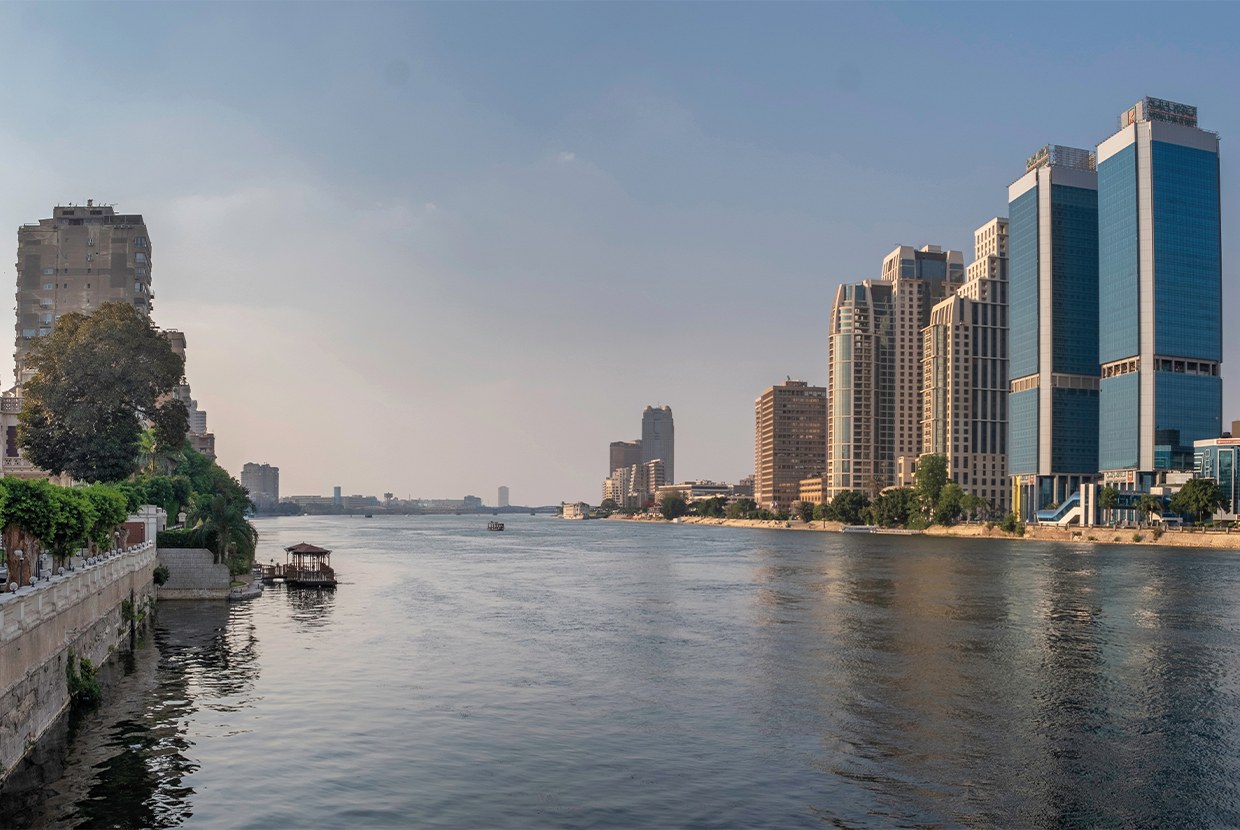Trade rules provide that goods can be freely imported and exported, provided that they are not included in the list of special categories of goods and prohibited goods and the appropriate duty has been paid. Egypt no longer requires import licenses, with the exception of items on the banned list, which the government has announced its intention to eliminate entirely. Parts of poultry are still banned in Egypt, although there are some indications that parts of turkey may be allowed soon.
Some exceptions to the prohibited list have been introduced, including items required for enterprises engaged in tourism, military production, civil aviation, the oil sector, or basic production resources approved by the minister of the relevant industry. With the exception of countries included in the UN sanctions lists, there are no restrictions on imports from other countries.
All Egyptian goods can be exported directly through customs without obtaining any export permits, except for hides, scrap metal (excluding stainless steel) and alpaca fibers. Some products are subject to an annual quota, including raw wool and wool waste, cotton and cotton yarn waste, tanned hides, and skins, used newsprint. Export duty is levied on the following locally produced goods – raw hides, molasses, raw hides, iron and steel scrap, nickel scrap, aluminum scrap, zinc scrap and antiques over 100 years old. Export quality control is voluntary.
The General Directorate of Export and Import Control must approve the export related to the replacement of production lines/machines with new equipment, and goods released by customs under import authorization, in case of re-export of goods/goods that were received damaged or invalid. to meet specifications.
Certification and confirmation of conformity of products in Egypt.
Egypt has its own product certification systems, which can increase the competitive advantage of the manufacturer’s products in the local market. Two systems can be distinguished:
– National Food Safety Administration (NFSA). The National Food Safety Authority (NFSA) of Egypt is an independent body established to protect the health and interests of consumers. The NFSA ensures that food consumed, distributed, sold or produced in Egypt meets the highest safety and hygiene standards. NFSA was established in 2008 as the National Food Safety Management Unit (FSA-MU) under the Egyptian Ministry of Trade and Industry. Pursuant to Article 3(1) of 2017, the NFSA has the power “to issue mandatory technical regulations governing food safety in accordance with applicable international standards and in a manner consistent with national requirements, and such regulations shall be determined by a decision issued by the NFSA/BOD “;
– GOEIC certification system. GOEIC is committed to protecting Egyptian consumers, the environment, and the reputation of the country by using the latest methods and procedures to inspect, test and certify products imported and exported. To achieve this, GOEIC is collaborating with other stakeholders from the Ministry of Trade and Industry to facilitate the movement of goods, develop Egyptian industry, encourage exports, and increase the competitiveness of Egyptian products. GOEIC governs certification requirements for a number of products and as of November 18, 2021, certificates of conformity are mandatory. Certification bodies and laboratories conduct product testing to determine compliance with quality standards, as well as conduct factory audits.
There are different certification schemes for different types of goods and volumes and frequency of export. To determine the certification scheme suitable for the products you want to import or produce in Egypt, you need to send a request to the certification bodies.
Also note that these certification systems are mainly applied to certain categories of goods and for export.
